Náutica (SPA-ENG)
Creo no equivocarme, cuando menciono que este deporte no solamente no se trata dentro del feed sino que además muy pocos conocen algo del mismo, suena raro dicho de esta forma si pensamos que la superficie acuática es casi tres veces mayor que la terrestre tomando el planeta en un todo.
Por supuesto somos seres terrestres y el agua nos es extraña por naturaleza, sin embargo, desde los tiempos de las primeras civilizaciones, fue la forma de movilidad más utilizada para cubrir grandes distancias, explorar y descubrir nuevas tierras y posibilidades de vida.
Pero hay un deporte al que llamamos náutica que tiene un par de grandes subcategorías respecto a la forma de impulsar las embarcaciones: por efecto del viento y con motor, esta última es llamada motonáutica.
En los recientemente finalizados juegos olímpicos, hubo varias competencias de náutica, todas ellas basadas en el impulso de las embarcaciones por medio del esfuerzo humano y con solo la ayuda del viento. Las competencias de remo en sus diversas especialidades como la cantidad de remeros, el tipo de embarcación son conocidas por todos nosotros, solamente por verlas en las trasmisiones de TV, también por supuesto las embarcaciones impulsadas por velas, donde también hay varias divisiones principalmente basadas en el diseño de las embarcaciones y también cantidad de tripulantes y cantidad de velas.
En mi país hay una gran tradición en este deporte, tanto en las embarcaciones impulsadas por el viento o por remos como también en las de motor, especialidad todavía menos conocida, quizás porque no es habitual su participación en las olimpíadas, principal impulsora de deportes poco convencionales, amateur y con menor difusión y seguimiento por parte del público; adyacentemente, menos atractores de publicidad y sus derivados.
Tengo un acercamiento con la náutica desde joven, gracias a mi afición por la pesca me he embarcado en muchas oportunidades, comenzando por los rudimentarios botes con remos, pasando por modernas lanchas y hasta he navegado en cruceros y un par de veces en el velero de 12 metros de un amigo, un gran fanático de este deporte que comulga con la naturaleza, el silencio, el sol y el viento.

El sábado pasado asistí a una jornada de pesca en el Río de la Plata, este extraordinario estuario que alberga una cantidad inusitada de embarcaciones deportivas, ver algunas amarras, guarderías y complejos náuticos y la cantidad de lanchas, veleros y yates que circulan por el delta del Paraná y el río abierto, nos ubican en una realidad silenciosa del deporte de la náutica que pocos conocen.
Muchos dicen que Buenos Aires le da la espalda al río, es decir que no se disfruta de su entorno y su belleza, quizás los que afirman esto no saben que hay una gran cantidad de personas que salen cada fin de semana a navegar, pescar, pasear o solamente fondearse en la soledad de algún arroyo o riacho de los miles que el delta esconde, solo para huir del ruido y del cemento por algunas horas.
La ciudad de Tigre, la más importante aledaña al gran Delta del Paraná conserva la tradición de la náutica y varios clubes de remeros, de regatas y guarderías de embarcaciones a motor continúan vigentes y con una gran afluencia de deportistas y aficionados que gustan del agua y las diferentes formas de circular sobre ella. Por supuesto el mar es un lugar ideal para la práctica de la náutica y también en algunas ciudades costeras del mar argentino es común observar una gran actividad.
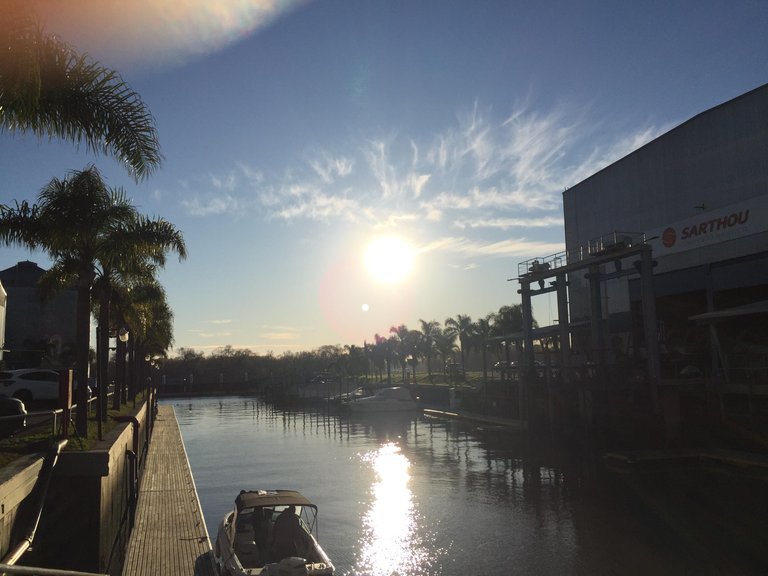
Cuando comenté sobre la medalla de plata obtenida por la vela en la clase Nacra17 en París 2024 mencioné al pasar que este deporte es el segundo, detrás del boxeo, que más medallas olímpicas ha aportado al deporte argentino, muy importante, aunque solo se recuerda, como dije, cuando cada cuatro años observamos estos juegos.
Pocos saben también que mi país tiene dos campeones mundiales de offshore, una categoría de la motonáutica que se compara con la F1, en el año 1978 J. Taylor ganó la categoría Class II y en el año 1992 D. Scioli (actual político) ganó el torneo de la misma clase.
La motonáutica en mi país tiene una larga historia y la primera carrera de la especialidad se disputó en el año 1907 y fue organizada por el Yacht Club Argentino.
Les dejo entre las fotografías algunas de este fin de semana donde en un paseo por la guardería previo a la salida de pesca, caminamos por el complejo náutico sorprendiéndonos con la cantidad de embarcaciones que sus muchos enormes tinglados guardan en sus entrañas. También otras más antiguas de mis incursiones en la náutica, todas ellas motivadas por la pesca.
Nautical
I think I'm not wrong when I mention that this sport is not only not covered in the feed, but also that very few people know anything about it. It sounds strange when said in this way if we think that the water surface is almost three times larger than the land surface, taking the planet as a whole.
Of course, we are terrestrial beings and water is foreign to us by nature, however, since the times of the first civilizations, it was the most used form of mobility to cover great distances, explore and discover new lands and possibilities of life.
But there is a sport that we call nautical that has a couple of large subcategories regarding the way of propelling the boats: by the effect of the wind and with a motor, the latter is called motorboating.
In the recently concluded Olympic games, there were several nautical competitions, all of them based on the propulsion of the boats using human effort and with only the help of the wind. Rowing competitions in their various specialties, such as the number of rowers and the type of boat, are known to all of us, just from watching them on TV, and also, of course, the boats powered by sails, where there are also several divisions mainly based on the design of the boats and also the number of crew members and the number of sails.
In my country there is a great tradition in this sport, both in boats propelled by wind or oars and also in motor boats, a specialty that is even less known, perhaps because it is not common to participate in the Olympics, the main promoter of unconventional, amateur sports with less diffusion and follow-up by the public; at the same time, less attracting publicity and its derivatives.
I have been involved with sailing since I was young, thanks to my love for fishing I have embarked on many occasions, starting with rudimentary rowboats, moving on to modern motorboats and I have even sailed on cruises and a couple of times on the 12-meter sailboat of a friend, a great fan of this sport that communes with nature, silence, sun and wind.
Last Saturday I attended a fishing trip in the Río de la Plata, this extraordinary estuary that houses an unusual number of sports boats. Seeing some moorings, nurseries and nautical complexes and the number of boats, sailboats and yachts that circulate through the Paraná delta and the open river, places us in a silent reality of the sport of nautical sports that few know about.
Many say that Buenos Aires turns its back on the river, that is to say, that its surroundings are not enjoyed. Perhaps those who say this do not know that there are a large number of people who go out every weekend to sail, fish, stroll, or simply anchor in the solitude of some of the thousands of streams or creeks that the delta hides, just to escape the noise and the cement for a few hours.
The city of Tigre, the most important city in the Paraná Delta, preserves the tradition of sailing that began in the early 20th century. Several rowing clubs, regatta clubs, and motor boat nurseries are still active and have a large influx of sportsmen and women who like the water and the different ways of sailing on it. Of course, the sea is also an ideal place for sailing and it is also common to see a great deal of activity in some coastal cities of the Argentine sea.
When I commented on the silver medal obtained by sailing in the Nacra17 class in Paris 2024, I mentioned in passing that this sport is the second, after boxing, that has contributed the most Olympic medals to Argentine sport, very important, although it is only remembered, as I said, when we watch these games every four years.
Few people also know that my country has two world champions offshore, a category of motorboating that is compared to F1. In 1978, J. Taylor won the Class II category and in 1992, D. Scioli (current politician) won the tournament in the same class.
Motorboating in my country has a long history and the first race in this specialty was held in 1907 and was organized by the Argentine Yacht Club.
Among the photographs I leave you are some from this weekend where, on a walk through the nursery before the fishing trip, we walked through the nautical complex, surprising ourselves with the number of boats that its many enormous sheds hold within. Also, some older ones from my forays into nautical life, all motivated by fishing.
Héctor Gugliermo
@hosgug
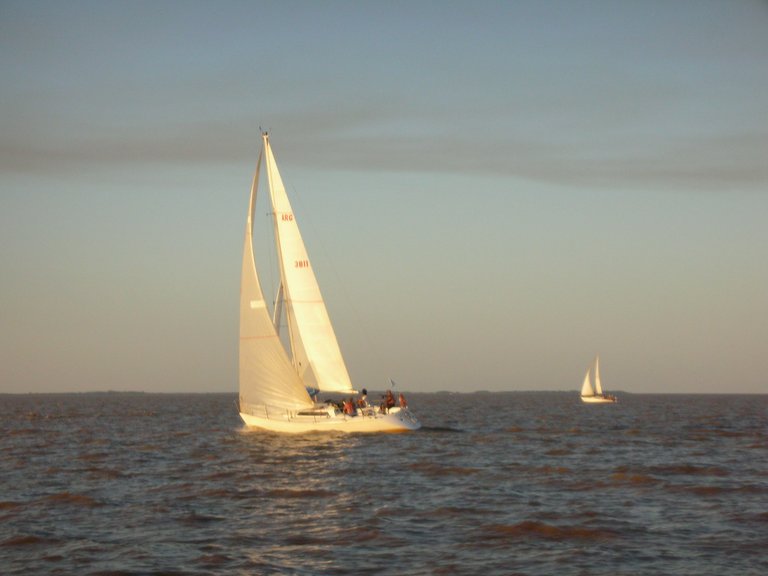
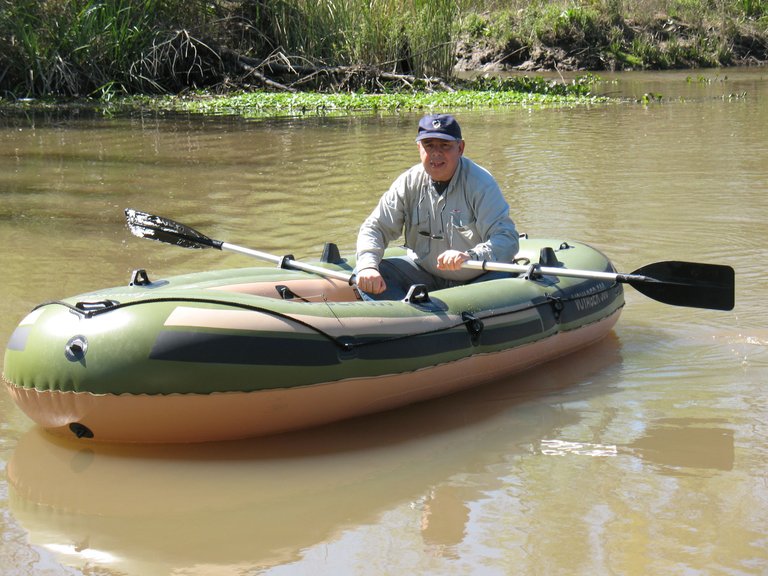
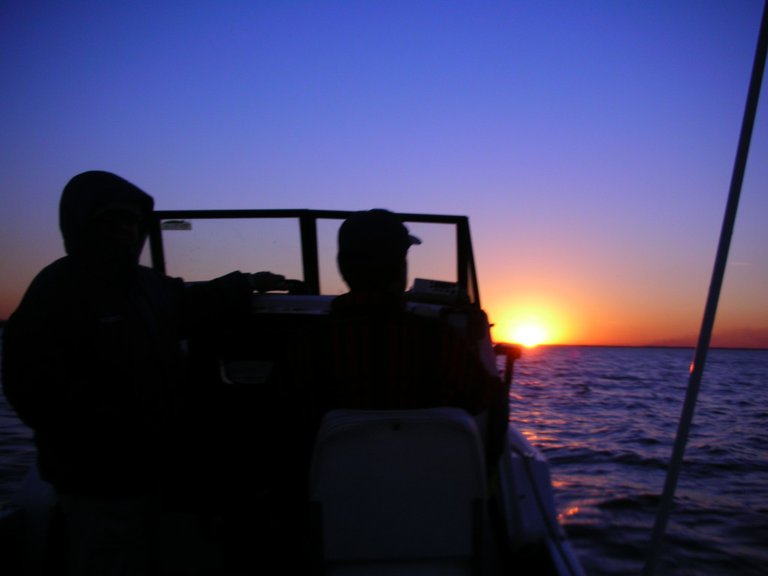
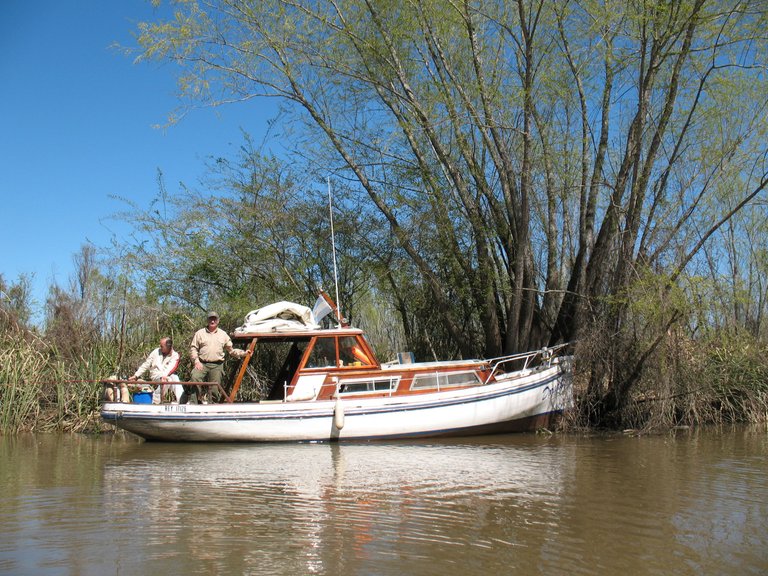
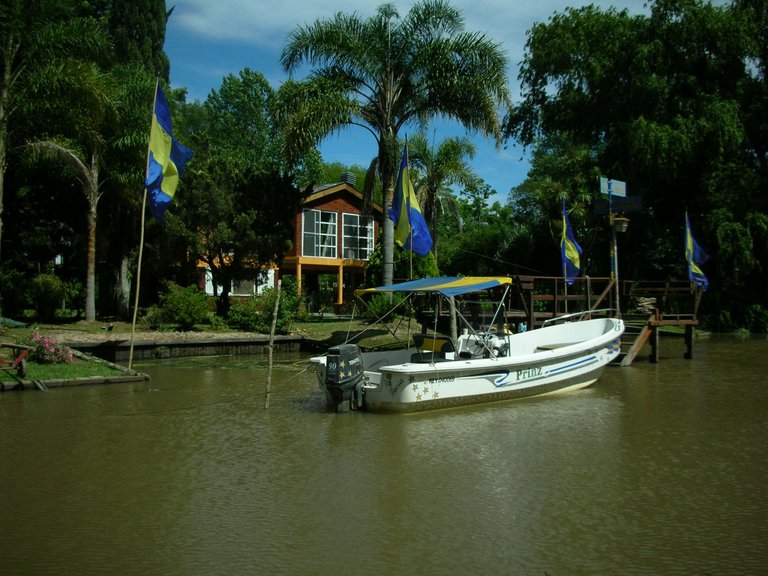
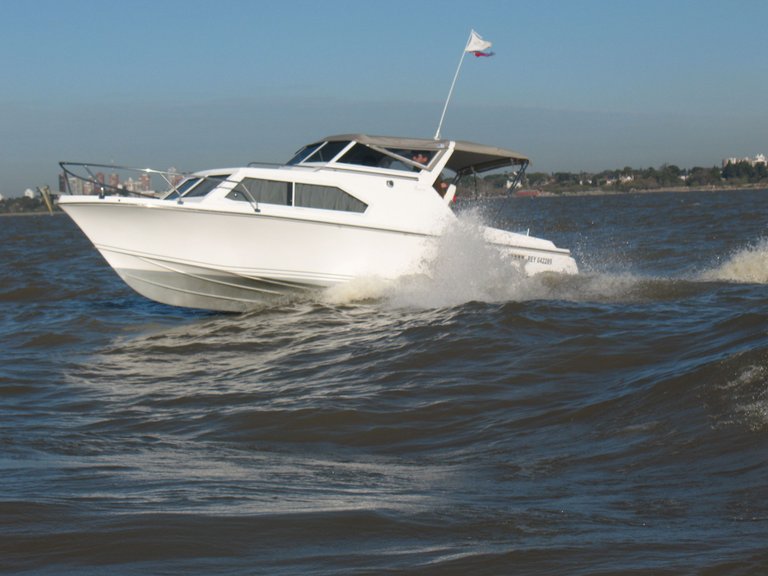
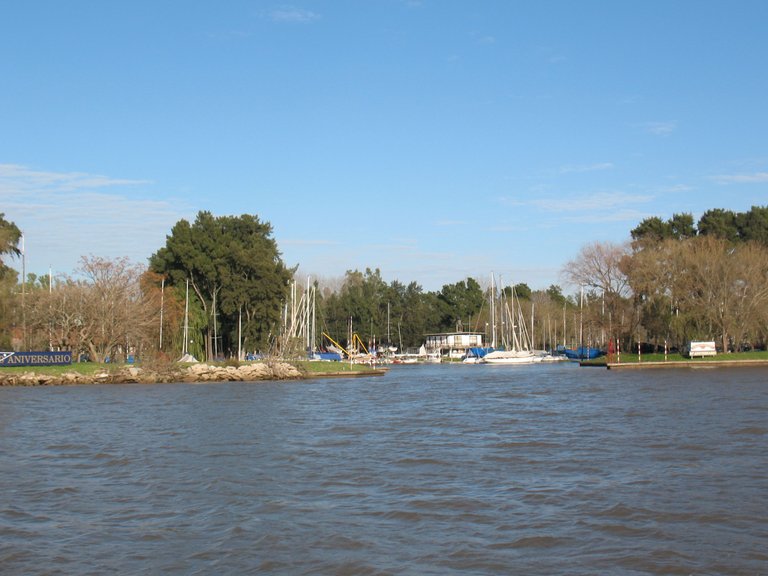
Congratulations @hosgug! You have completed the following achievement on the Hive blockchain And have been rewarded with New badge(s)
Your next target is to reach 32000 upvotes.
You can view your badges on your board and compare yourself to others in the Ranking
If you no longer want to receive notifications, reply to this comment with the word
STOPCheck out our last posts:
Thank You @hivebuzz
That's great @hosgug! We're excited to see your accomplishments on Hive! We'll continue to support you to achieve your next goals!